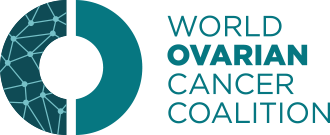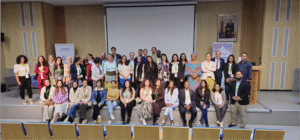An interview with the Pan-Arabian research Society of Gynecologic Oncology (PARSGO).
24 September 2025
Tell us about how PARSGO was started.
PARSGO was founded in 2016 as a non-profit and non-political research organization in Berlin, Germany to address the unique challenges faced by women in the MENA and Sub-Saharan Africa regions concerning gynecologic cancers. Recognizing the need for specialized care, education and research in these areas, we established PARSGO to create a collaborative network of healthcare professionals and patient advocates dedicated to improving outcomes for women affected by gynecologic cancers. We work closely with international partners, including ESGO, ENGAGe, GCIG and local institutions, to foster collaboration and knowledge exchange.
What are your main priorities and programs supporting those affected by ovarian cancer?
Our primary focus is on gynecologic oncology, including ovarian cancer. To achieve our goals, PARSGO has established four dedicated working groups:
- Education: Provides training programs, workshops and educational resources for healthcare professionals to enhance knowledge and skills in gynecologic oncology.
- Research: Supports and promotes regional and international research initiatives aimed at improving early detection, treatment and survivorship for ovarian cancer patients.
- Patient Advocacy: Works to raise awareness about gynecological cancer, to empower patient and support initiatives that improve access to care and resources.
- Tumor Board: Organizes multidisciplinary tumor boards where complex gynecologic oncology cases are discussed by specialists from multiple disciplines. This allows sharing of expert opinions, facilitates optimal treatment planning and encourages collaboration and knowledge exchange across the MENA region. The tumor boards serve as a central platform for building networks and ensuring that patients receive care guided by best practices and international standards.
In addition, we address barriers in access to advanced diagnostic tools, such as immunohistochemistry and the implementation of immunotherapy in the MENA region. Through these programs and working groups, we aim to empower both patients and healthcare providers with the knowledge and tools needed to combat ovarian cancer effectively, while fostering a regional network for exchanging expertise.
What are the most significant challenges facing your community when it comes to ovarian cancer?
Significant challenges include limited awareness and late diagnosis of ovarian cancer due to restricted access to screening and diagnostic services. Many healthcare facilities also lack the infrastructure and specialized personnel to provide comprehensive gynecologic oncology care, including access to advanced diagnostics like immunohistochemistry and modern treatments such as immunotherapy. Gaps in regional research and data make it difficult to develop evidence-based guidelines tailored to the MENA population. Cultural and socioeconomic factors can further delay presentation and treatment, particularly in rural or underserved communities. Addressing these challenges requires clinical and educational efforts, policy advocacy and stronger regional collaborations to improve equity, access, and outcomes for women with ovarian cancer.
Can you share a moment, initiative, or achievement your organization is particularly proud of in your work with ovarian cancer?
We are particularly proud of our collaborative efforts in organizing the 3rd International Arabic Women’s Cancer Days & 6th GCIG – CCRN Symposium in Morocco. This event brought together experts from across the globe to discuss current perspectives on gynecologic cancers, especially ovarian cancer. It provided a platform for knowledge exchange, capacity building and the development of strategies to improve care for women affected by these cancers in the MENA region. Our ongoing efforts to build a strong regional network continue to strengthen collaboration, education, and research in gynecologic oncology.

